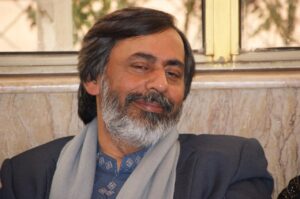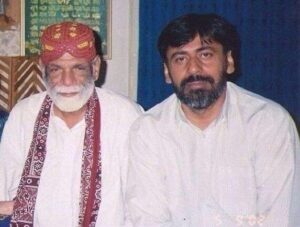Remedy for OCD
Introduction
Obsessive-Compulsive Disorder (OCD) is a complex mental health condition characterized by persistent, unwanted thoughts (obsessions) and repetitive behaviors (compulsions). This blog aims to deepen the understanding of OCD, explore its multifaceted causes, detail management strategies, and introduce The Ultimate Remedy, an innovative audio therapy designed to complement traditional OCD treatments.
Understanding OCD
OCD is more than just being overly neat or liking things a certain way. It involves intense obsessions and compulsions that can significantly disrupt daily life.
Key Characteristics
Obsessions: Intrusive and unwanted thoughts or images that cause distress.
Compulsions: Repetitive behaviors or mental acts that a person feels driven to perform in response to an obsession.
Causes of OCD
Genetic Factors
Family History: A higher risk of OCD in individuals with a family history of the disorder suggests a genetic component.
Neurobiological Factors
Brain Structure and Functioning: Abnormalities in certain areas of the brain, like the orbitofrontal cortex, and imbalances in neurotransmitters, especially serotonin, are linked to OCD.
Environmental Factors
Childhood Trauma: Early life traumas or stressful events can increase the risk of developing OCD.
Behavioral Conditioning: Certain behaviors may become compulsions through a process of negative reinforcement.
Psychological Factors
Personality Traits: Traits like high levels of anxiety or perfectionism can predispose individuals to OCD.
Management Strategies
Managing OCD is a multifaceted process, often involving a combination of therapies and lifestyle adjustments.
Medical Interventions
Medications: Selective Serotonin Reuptake Inhibitors (SSRIs) are commonly prescribed to help manage OCD symptoms.
Cognitive-Behavioral Therapy (CBT): Particularly Exposure and Response Prevention (ERP), is a cornerstone of OCD treatment, helping patients confront their fears in a controlled environment.
Lifestyle Modifications
Stress Management: Techniques like mindfulness, yoga, and regular exercise can help reduce overall stress levels, which can exacerbate OCD symptoms.
Support Groups: Connecting with others who have OCD can provide emotional support and coping strategies.
The “Ultimate Remedy” An Alternative Approach
The Ultimate Remedy offers a unique angle in managing OCD symptoms through audio therapy. It combines the therapeutic effects of sound with positive intention setting to promote mental well-being.
How It Works
Therapeutic Sound Waves: Utilizes specific sound frequencies aimed at relaxation and stress reduction.
Intentional Healing: Incorporates positive affirmations to support mental health and combat intrusive thoughts.
Utilizing The Ultimate Remedy
Download the Audio: The therapy is accessible via provided website links.
Adherence to Instructions: Follow a structured listening routine as outlined on the website.
Continuous Support: For any queries, reach out to help@mastmasthealers.com.
Happy Patients
Years since day one
%
Satisfaction
Testimonial
How to Listen to the Ultimate Remedy:
Download the Ultimate Remedy audio from our website or app. It’s free and accessible to all.
- Choose a quiet, comfortable space where you won’t be disturbed.
- Close your eyes and visualize yourself in the presence of your higher power or the essence of the universe.
- Listen to the audio with great concentration and closed eyes.
- After the audio is finished, open your eyes and take half a glass of water.
- Close your eyes again and say “your name” or a word that represents your belief (such as “God”, “Universe”, or “Love”) three times in your heart.
- Drink the water with closed eyes in three sips.
- For optimal results, it’s recommended to listen to the Ultimate Remedy three times a day (morning, evening, and before sleeping) for seven consecutive days.
About the Creator – Syed Safdar Hussain Bukhari
Introduction and Early Life
Syed Safdar Hussain Bukhari, also known as Kakian Wali Sarkar, was a unique example of kindness, devotion, and tenacity. Born on May 6th, 1940, he dedicated his life to serving humanity and providing relief to those suffering from various ailments.

Social Work and Spiritual Journey
Between 1960-1980, he engaged in social work by undertaking road repairs, establishing schools, and arranging medical supplies in Lilla Town. In 1990, he left his ancestral home and family wealth to move to Lahore, where he comforted the depressed and saddened through mystic dance and music.
The Ultimate Remedy
In 1998, Baba Bukhari’s research led to the discovery of “The Ultimate Remedy,” a blessed audio that he believed could cure physical, psychological, spiritual, and supernatural problems. The remedy involved listening to the audio three times a day for seven consecutive days, followed by a specific water ritual. This method claimed to cure various ailments, including coronavirus, AIDS, cancer, drug addiction, worldly problems, and psychological issues.
Legacy and Death
Baba Bukhari’s research and unconditional love left a lasting impact on humanity, providing positive thinking, peace of mind, health, fearless life, and an example of love and compassion. He passed away on February 8th, 2005, leaving behind a legacy of healing through “The Ultimate Remedy.”

His spiritual successor is Syed Baba Jaan
According to Baba Bukhari (RA), his spiritual successor is Mr. Shakir Uzair, also known as Syed Baba Jaan . As the chosen heir to Baba Bukhari’s spiritual legacy, Syed Baba Jaan carries forward the teachings and practices that have been passed down through generations. Dedicated to serving humanity and promoting healing, Mr. Shakir Uzair continues to spread the message of love, compassion, and the transformative power of the Ultimate Remedy to help countless individuals in their journey towards holistic wellness and personal growth.

